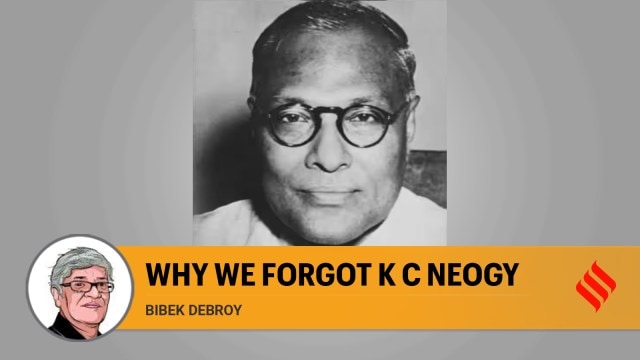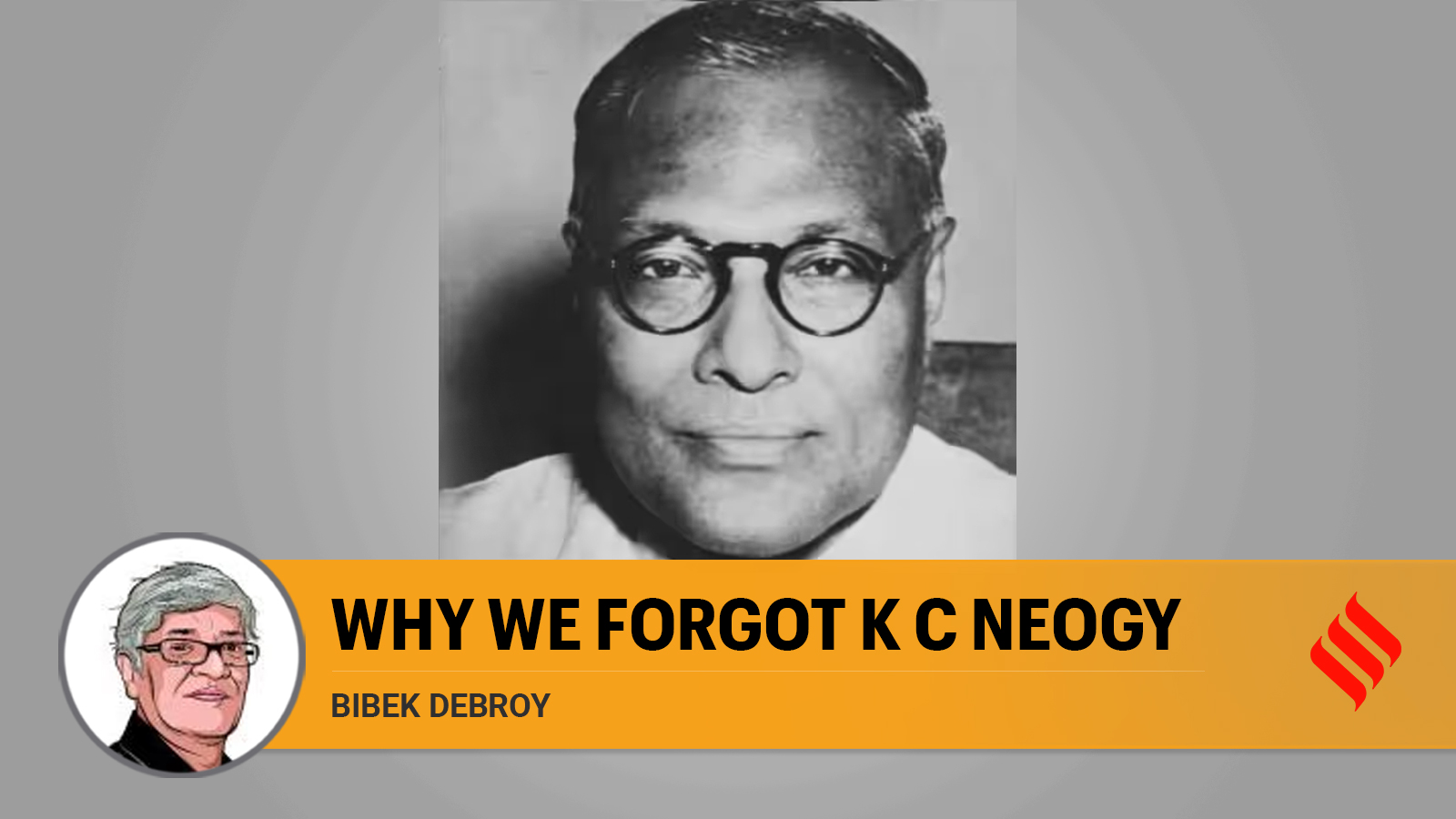
I have no intention of converting this column into a Neogy biography. In an earlier column (‘The administrator India forgot’, IE, June 13), I wrote about Kshitish Chandra Neogy (1888-1970). But, a few bits need to be added. In that column, I mentioned that in 1946, he became a member of the Nuclear Commission, which led to the Universal Declaration of Human Rights. In October 1946, Jawaharlal Nehru wrote to Lord Wavell (Selected Works): “It may interest you to know that over a month ago I requested K C Neogy to become a delegate in our UNO Delegation to America. He accepted it, but soon after he expressed his inability to go. The reason he gave me was that conditions in East Bengal were fast deteriorating and that a general attack on behalf of the Muslim League was expected in the near future. Neogy did not wish to leave his family in East Bengal when everybody there seemed to be expecting this mass attack.” Nehru also stated this in an interview he gave to the press in September 1946. “As for the proposed Indian delegation to the UNO, originally the Government had invited Syed Raza Ali and Pandit Hriday Nath Kunzru. Neither of them was able to accept. Later, Neogy was invited and he accepted, but in the past few days Neogy informed me that he would be unable to go owing to more or less domestic reasons.”
We know K C Neogy was a member of Indian National Congress and was elected to the Constituent Assembly (1946) from Bengal. But before this, there was the Central Legislative Assembly and, representing Bengal, he was elected to this in 1920, 1923, 1926 and 1930. Now that a lot of information has been digitised, we can find more stuff from parliamentary records. He was educated in Presidency College (Kolkata) and Dhaka College and was married to Lila Devi. From 1935 to 1940, he was Dewan of the Mayurbhanj State, a fact that is probably not generally known. His permanent address was in Southern Avenue (Kolkata). In 1939, Charulal Mukherjea published a book titled The Santals. It was dedicated to Maharaja Pratap Chandra Bhanja Deo of Mayurbhanj and Neogy was some kind of trigger for the monograph. In January 1938, he wrote to the author, “I am glad that you are thinking of bringing out a comprehensive book on the Santals, incorporating your past writings on the subject. As you know we have a very large Santal population in Mayurbhanj, and would like to encourage a regular ethnological and anthropological survey of this as well as other aboriginal tribes inhabiting this state….In case, however, you feel interested in undertaking a study of our Santal population on the spot, I shall arrange for requisite facilities in the matter.” Mayurbhanj state did help the author in his survey.
There are two reasons why Neogy faded from public memory. Jawaharlal Nehru was fond of him and once Nehru was no longer around, Neogy lost his importance. Plus, he himself aged. More importantly, he wrote little, almost nothing at all, other than what was part of committee reports. An exception was a piece he wrote, titled “Rabindra Nath Tagore, the Poet Laureate of India”. (Which educated Bengali could avoid writing on Tagore?). This was published in The Open Court in 1917. (Tagore won the Nobel Prize in 1913.) “Indeed, the sudden acclamation in the West of Rabindra Nath Tagore as a world-poet of the first magnitude, has made a few critical spirits in India shake their heads in doubt and weigh and scrutinise the meed of praise that has been bestowed on this illustrious son of Ind(ia). Whether the halo that surrounds him today will endure is more than one can say. And these Indian critics are inspired with the fear that what appears to be natural splendour radiating from a lustrous gem of the Indian deep, may, after the excitement of the passing hour has spent itself, prove to be but the illusive effect of some handy optical stage device, impressed into service at the impatient call of the goading desire of the West for something fresh and quaint in the way of stimulants… Overwhelmed as the poet has been by the eulogy and benediction with which he has been greeted from all quarters, he does not seem to be quite happy with his Indian audience. After his first return from Europe, Rabindra Nath was received everywhere in India with affectionate regard. But he seemed to suspect that much of the honour showered on him, particularly in his native province of Bengal, was but the echo of the tributes of praise that were unstintedly rendered to his genius in the West… It might be said that a poet was often-times more honoured by posterity than by his own generation.” This might seem contrarian today. But writing in 1917, there was a grain of truth to it. And reluctant though Bengalis might be to admit it, in 1913, Bengal didn’t applaud the Nobel Prize wholeheartedly.
The only other written piece that goes under Neogy’s name is a piece in a slim monograph titled, “What Happened After Gandhi’s Arrest”. This was published by the India League of America in 1942. But this was actually a speech delivered in the Central Legislative Assembly in 1942. We are often accused of not documenting history properly. A malaise also relevant for K C Neogy.
The writer is chairman, Economic Advisory Council to the PM. Views are personal


